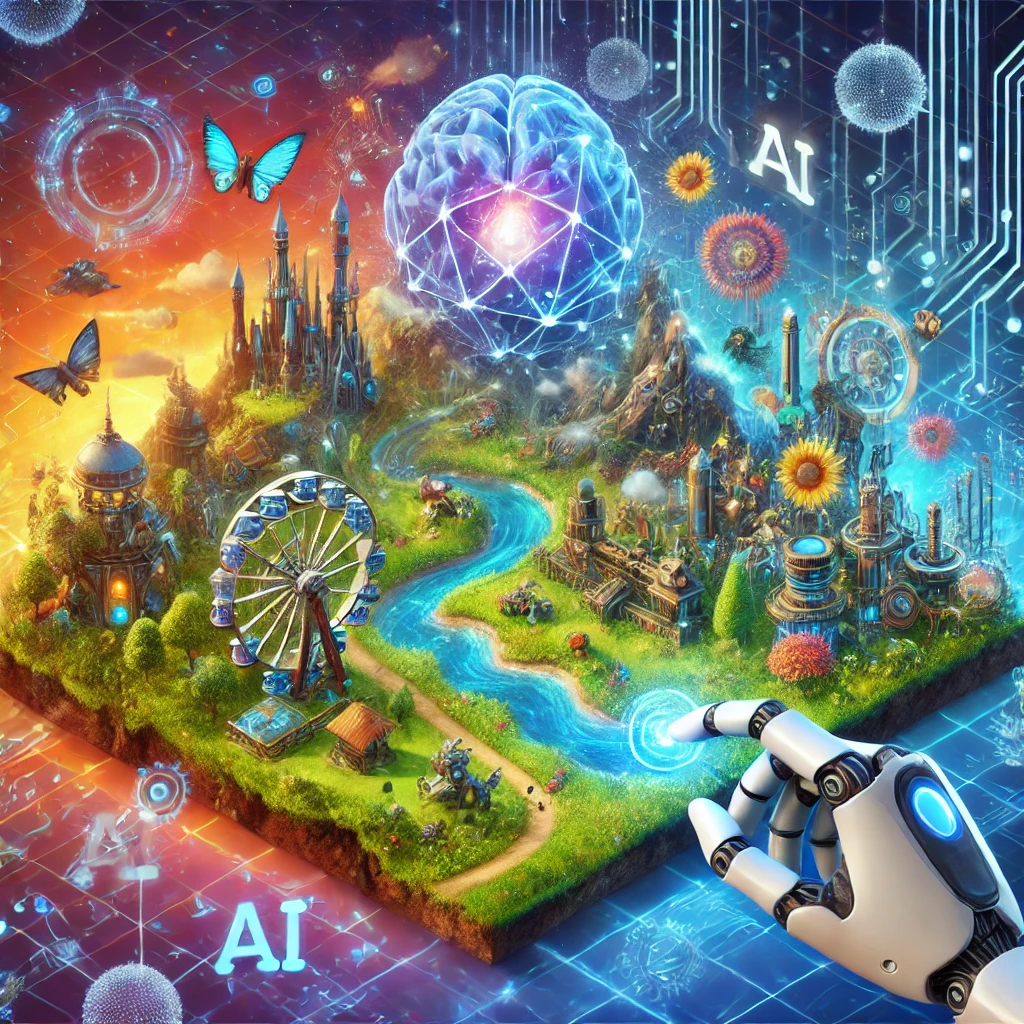Generative AI and Game Development

Hi, I’m Saad Khawaja, a full-stack software engineer specializing in multiple tech stacks. As a game developer always on the lookout for new innovations, I’ve been diving into some exciting AI technologies that are shaping the future of our industry. If you’re aiming to level up your game development skills in 2024, here are the top AI concepts and tools you should explore:
Generative AI in Games: Shaping the Future of Interactive Entertainment
Generative AI is revolutionizing the gaming industry by introducing unprecedented levels of creativity, efficiency, and player engagement. By leveraging machine learning models to create content, developers can now craft expansive worlds, dynamic storylines, and adaptive gameplay experiences at scales that were previously unimaginable. Let’s break down how generative AI is transforming the gaming landscape and what it means for the future of interactive entertainment.
Concepts/Techniques
1. Procedural Content Generation (PCG) 🌟
Ever wanted to create endless levels or unique worlds on the fly? PCG uses AI algorithms to dynamically generate game content, ensuring that players always have something new to explore. Imagine sprawling dungeons, vibrant landscapes, or infinite terrains that adapt to player actions.
📚 Key Tools: Houdini, Unity ProBuilder, Dungeon Architect
2. Dynamic Narrative Design 🌟
Generative AI can dynamically craft narratives based on player actions. Instead of pre-written story branches, AI systems write dialogues, create plot twists, and introduce characters that adapt to individual playstyles, ensuring no two playthroughs are the same.
📚 Key Tools: Inkle, AI Dungeon, OpenAI GPT-4
3. Realistic Character Behavior 🌟
AI models can generate unique character models, animations, and behaviors, giving developers tools to populate their games with lifelike NPCs. Smarter AI-driven behavior systems enable NPCs to adapt intelligently, creating more immersive interactions and challenging gameplay scenarios.
📚 Key Tools: InWorld, Unity ML-Agents, Behavior Designer
4. Adaptive Gameplay 🌟
By analyzing player behavior in real-time, generative AI adjusts the game’s difficulty, environment, or objectives. This keeps players engaged by seamlessly balancing challenge and enjoyment.
📚 Key Tools: Ludo.AI, Scenario
5. Music and Soundscapes 🌟
AI-powered tools compose adaptive soundtracks that evolve based on in-game events or player progression, heightening immersion. Similarly, AI generates ambient soundscapes that react to the game world dynamically.
📚 Key Tools: AIVA, Magenta Studio, Jukedeck
Tools
1. Scenario 🌟
Want to give your game a personalized touch? Scenario helps create an engaging gamer experience by training AI models according to your designs and patterns. Just upload your training data, and let the AI handle the rest.
📚 Key Tools: Scenario
2. Ludo.AI 🌟
Imagine a game that adapts to the player’s skill level and interests. Ludo.AI analyzes player behavior to personalize their experience and generate creative ideas and elements.
📚 Key Tools: Ludo.AI
3. Rosebud AI 🌟
What if you could create game assets and code by simply providing text descriptions? Rosebud AI transforms prompts into playable game content, saving you time and costs.
📚 Key Tools: Rosebud AI
4. Promethean AI 🌟
Need rich 3D environments? Promethean AI is especially popular among independent developers for its ease of use and licensing options, making the creation of 3D environments a breeze.
📚 Key Tools: Promethean AI
The Future of Generative AI in Games
As generative AI technologies continue to evolve, their role in gaming will expand. Emerging trends include:
- Collaborative AI Tools: Systems where developers work alongside AI to co-create assets, blending human creativity with machine efficiency.
- Player-Centric Design: AI systems that respond to individual player preferences, crafting unique game worlds and stories on the fly.
- Cross-Platform Integration: Using generative AI to seamlessly adapt games for different platforms, ensuring consistent quality and experience.
By diving into these AI technologies and tools, you can create more dynamic, engaging, and immersive experiences for players. The future of game development is incredibly exciting, and AI is at the heart of it!
#GameDevelopment #GenerativeAI #ProceduralContentGeneration #DynamicNarratives #AdaptiveGameplay #AIInGames #Innovation #GameDesign #MachineLearning
